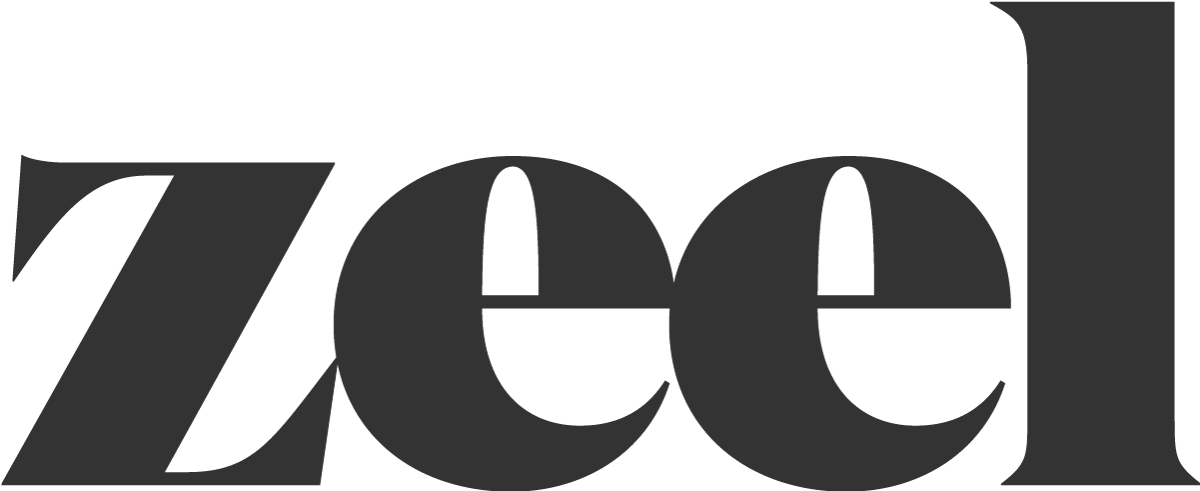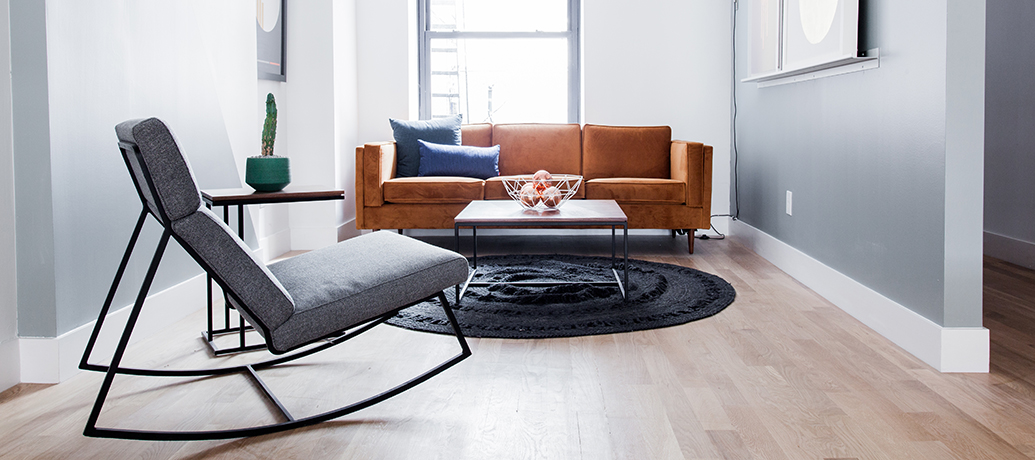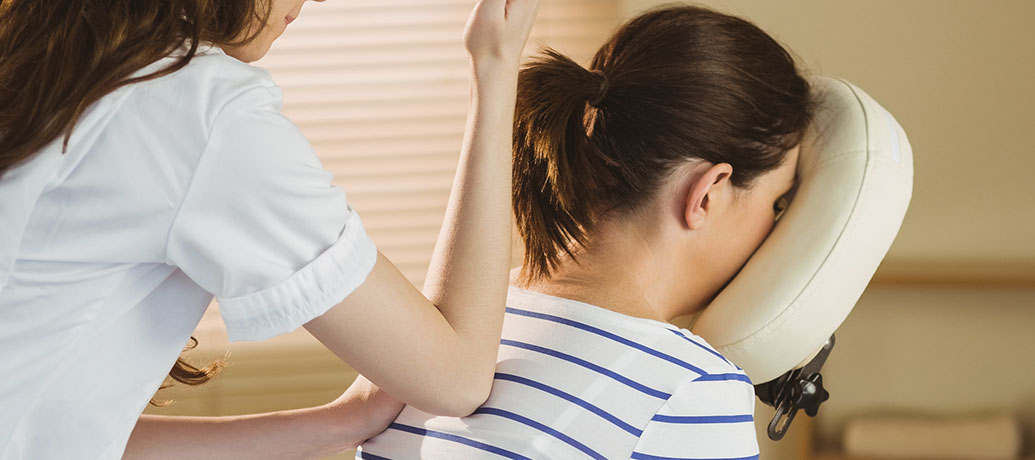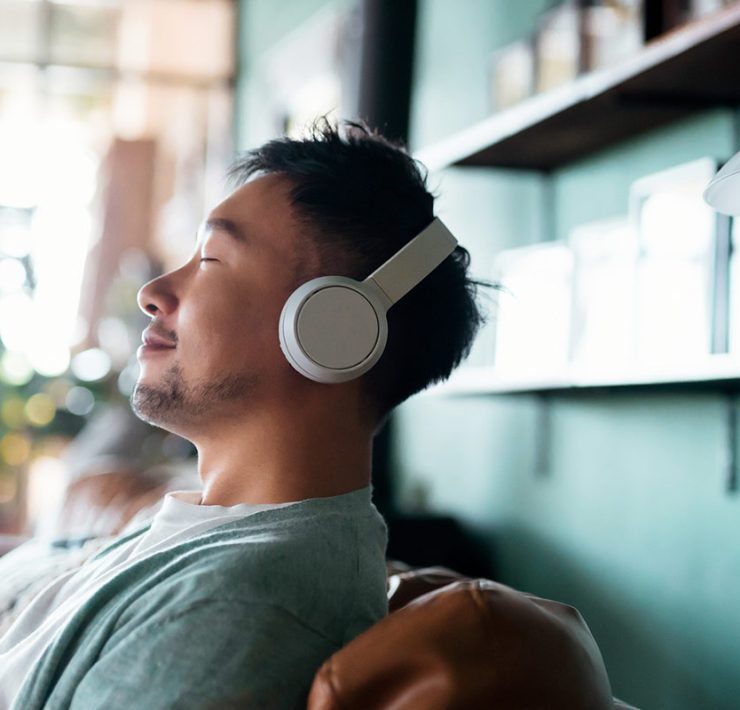A conversation with Julien Smith of Breather about the benefits of alone time, meditation, good sleep, and other restorative tips for a productive workday.
It’s important for every company (not just those in the wellness industry) to promote healthy habits at the office. Zeel staffers are all about relaxation, eliminating stress, and making sure employees maintain a good work-life balance. After all, you can’t have a massage company that’s on edge.
Breather, an on-demand network of private workspaces that can be rented by the hour in 10 cities, began with similar intentions. Breather’s mission is to help people find a quiet place to seek refuge from the elements, take a meeting or phone call behind closed doors, or even meditate – all within a peaceful, well-designed environment that you can book and auto-unlock with your phone.
In celebration of the National Sleep Foundation’s Sleep Awareness Week, we sat down with the CEO of Breather, Julien Smith, to chat about what inspired Breather, how he promotes a relaxing work atmosphere for his international team, and his own personal sleep and restorative habits.
Zeel: What inspired you to start Breather?
Julien Smith (Breather): Breather was started in 2012 to help me get out of coffee shops. I was a business writer for many years. I would find myself going from my house to a local coffee place. I would sit there and write for several hours. At some point, around midday or so, I would find myself sick of the coffee shop that I was in. I’d realize I had nowhere to go, except back to my house again.
So I thought, “It feels like there should be a place I could go, but I don’t want to be in another public place, and order another coffee. I just want to go to a private place that isn’t my home.”
So, I went about creating this private refuge that – it turns out – didn’t exist. My theory was that privacy and silence are valuable.
“I’d spent time in Zen monasteries in Japan,
and I couldn’t find anything like this near me.”
Electronic locks had just come out on the market at this point. I thought, “This is really interesting.” I could open spaces, with my phone.
So, we raised a little bit of money to try out the idea. We launched, and it was successful in Canada, where it started. Then we thought, “This is probably something. If it’s something, we definitely have to try it in New York.” So we launched almost immediately in New York, and that’s where it took off. Breather has been growing ever since.
How have you seen customers’ on-demand needs evolve? Are people using the spaces as you intended? Any surprises along the way?
There are many more groups meeting [in Breathers] than individuals using the spaces for independent work. That’s definitely something that I did not envision. But the reason is the same – they need a space. They need that space to be private, and private space is generally hard to obtain.
So, what you see is a range of uses all over the place. You see church groups that meet in Breathers. You see meetings. You see individual workers. You see companies legally merge inside our spaces, because they need neutral places to meet and sign the legal agreements.
There are all kinds of use cases for our spaces. We serve most of the legitimate ones.
And outside of the ‘business’ uses like meetings, are there any Breather uses focused on relaxation – such as meditation, yoga classes, or massage?
Oh yeah, people sometimes do yoga, and meditation in groups. Or they teach classes. People use Breather for any reason they have to gather. We really don’t discriminate.
Are there specific design elements or little touches that add to the peaceful vibe of the spaces?
Definitely. Quality of space is core to what we do. You have this “aha” moment when you open the door to any space. You might find a space that’s amazing. Or one that will do. Or you’ll say, “What the hell?”
Design requires lots of consistent work, and consistent attention to details, to materials, to art, and to space. How many chairs should there be at a table? Should there be a TV? How big should the TV be? All these things need to be done in a thoughtful way.
“When space is excellent, it allows you to become your ideal self for a moment, and it’s very rare that people have that moment to themselves.”
Usually when spaces are high-quality, a lot of people are churning through them. A nice restaurant, for example, will be packed with tons of people. Very seldom do you get a space that is very good quality, and that is just yours.
How do you ensure your customers are able to experience that moment?
Every experience, every touchpoint that you have with a customer is something that has to be managed. The interesting thing is, by automating Breathers, you’re actually removing friction and simplifying the path toward a positive experience. If we had to have someone meet them at the door to unlock the space, we’d have to worry about that person. But it’s just you and the door, unlock the space, and it’s just there. It’s like a little oasis.
“If you’re a CEO of a startup – or really anyone in a startup – having the ability to get time to think is very valuable.”
“Oasis” seems like the perfect word here. On a more personal note, what’s your favorite way to relax and create your own oasis, especially when tech startup life gets crazy?
Well, I meditate 30 minutes a day, or at least I try to. Sometimes I do it in some of our spaces, and sometimes I do it at home. If you’re a CEO of a startup – or really anyone in a startup – having the ability to get time to think is very valuable. If you’re in an office, you really can’t do that, because there’s always going to be either someone to talk to, something that you need, some fire that you have to put out, or some emails that you feel you have to go through.
So going to a space where you have none of those distractions is amazing. We have one Breather right next to our office. We have a number of them nearby in Manhattan as well. It’s great to just go, and leave your phone, behind and think to yourself, “What is important for me to work on?” I’ll sometimes bring a notepad with me. Or I’ll bring nothing, and just sit.
It’s really awkward for people to just…sit. Last night I had dinner in a restaurant. I went to the bathroom and came back, and obviously one of the people at the table was on his phone. He asked, “What did we used to do at restaurants, waiting for the person at the bathroom to come back, when we didn’t have our phones?”
It can feel awkward to sit or stand doing nothing, without your phone. But if you’re in your own place, and there’s no judgment, you can decide, “I’ll just sit here.” And it’s great.
I agree 100%. It seems the “moment to yourself” is forgotten nowadays with our ever-connected lifestyle. So, beyond your meditation practice, are there any other personal habits that help you stay relaxed?
I write a thousand words a day.
The first thing that I do in the morning when I wake up is to make a pot of coffee. Then I’ll sit down with my laptop. I’ve done this ever since working as a writer. I’ve written three books and blogged a lot. And I’ve found this habit produces enormous clarity of thinking. Just to dump down a thousand words – who cares how good it is or what it is.
It’s extremely helpful to begin your day like this. Early on at a startup, you’ll frequently be thinking, “Oh my god, how am I going to solve this problem?” We’re in a different stage of business at Breather now, but back in the “oh my god” days, I’d often have these moments of waking up in the middle of the night.
So instead of lying awake thinking about your problems, write something down. It’s very helpful.
“Write to the solution,” as they say.
Yeah, even if you don’t get to a solution, at least you’ll clarify how you feel.
And what time do you usually wake up to write? Are you a morning person?
I wake up at 6:30 every morning. I used to have seizures. I’ve got epilepsy (which is the pill that you just saw me take). I don’t have seizures anymore, but I make sure to get 8 hours of sleep every night, because it’s what my doctor told me to do, and I’ve never stopped. I imagine that if you run a company and you don’t get 8 hours, it probably makes your life a lot worse.
There’s always those articles about “sleep habits of CEOs”…
Yeah, exactly. So my sleep habit is, I sleep 8 hours a night.
And do you have a strict routine for these daily and weekly habits (meditation, etc.), or does it vary?
No, it depends on the day. I go to the gym three times a week, in the mornings, so if I don’t have time then, I just find the time to meditate at another time.
I have a variety of restorative things that I do. For example, I walk my dog every day.
I have to have certain things that I do to recuperate, because I literally created a company that allows others to recuperate. It’s important to me.
And for your employees here at Breather, do you implement any sort of guidelines around making sure people take breaks, de-stress, and maintain a healthy work-life balance?
We don’t feel the need to do that, because we trust the people that we work with. We run almost like a remote office company, with liberal work-from-home policies. We trust people to do good work.
It’s not like “You have to sit at your desk, and do something specific that we tell you to do.” I have worked at companies like that, when I was much younger. It’s not the kind of company I want to be at, so it’s not the kind of company I want to make.
That’s good to know. Do you ever notice people taking naps at the office, or taking restorative breaks – maybe go to a Breather and meditate like you do?
I know that some people do. It’s something that we talk about a lot internally.
Yes, Breather users are mostly people gathering 9-to-5, usually for work purposes, all these things. But really, the spaces were created for alone time.
“The spaces were created for alone time.”
Do you ever take naps yourself?
I really don’t. We don’t have a nap room. We could, I guess, but we’re bursting at the seams here in New York, as well as in every other Breather office. We have almost as many units in New York as there are Starbucks.
There’s a lot of opportunity for people to use the spaces however they see fit. My sleep patterns don’t involve napping, so it’s something that I’ve never felt a personal need to do.
When we’re a big company, I’m sure we’ll have some kind of nap room in the office.
And when you look at other companies, do you think that there’s something that they could be doing better in terms of promoting work-life balance and corporate wellness? Startup life can get kind of mad, as you know…
It does, but you have to vote with your feet, when it comes to the place that you want to work at. I’m not the kind of person who would try to be prescriptive with others. So some places have nonstop, 12-hour day culture. If that’s what you want, go get it.
I know what works for Breather, and for our culture. We want to be a certain type of company that cares about certain things. The product that we have and care about is an embodiment of our values.
From our perspective, it’s an issue of treating people well, and keeping smart, good people here. We have lots of smart, good people. It’s one of the things I’m most proud of. Keeping those people here means being a reasonable person, and being liberal with the stuff that our people want. It turns out to usually be balance.
What’s your best piece of advice for people looking to find that balance, and build “breathers” into their lives?
I think they have to figure out what their cycles are. Certain people have cycles, and do good work at certain times, and one of the things that has worked quite well for me is to know my cycles.
When it comes down to it, I have a 10 year job. My 10 year job is to get this company to its ultimate outcome, whatever that ultimate outcome is. So by definition that involves not burning out. Because if I burn out, I am useless to everyone.
What that means for us, and what it means for me, is figuring out under what circumstances I am effective, and under what circumstances I am ineffective. I had to learn that a long time ago when working for myself.
When you figure out which way you work best and in what way you are most productive, do not deviate from that routine.
I ensured that I was at my best in the morning, so if I and I knew if I deviated by 2 pm, for example, I would have gotten tons of stuff done anyway. Some people really have enormous tenacity.
“I know myself, and I’m just aware that I’m an animal. So, as an animal, I have to put systems around myself in order to ensure that I behave a certain way. That’s what I’ve learned to do.”
Any final words of wisdom?
If you’re going to be productive, you just have to understand yourself. If you don’t, you’re just going to create all of these suboptimal situations.
I’m programmable. And since I know that I’m programmable, and easily influenced, I need to behave in certain ways to ensure that I will get that outcome that I want.
—
Looking for a surefire way to give your team a well-earned breather that boosts productivity? Visit our corporate wellness page to set up a chair massage event in your office.
Zack is a writer, producer and marketer with 10+ years' experience in the advertising, nonprofit and tech startup industries. He is currently the Education Production Team Lead at Foundr Magazine, a web site for entrepreneurship education and was previously Content Manager at Zeel. Learn more about Zack on LinkedIn.







